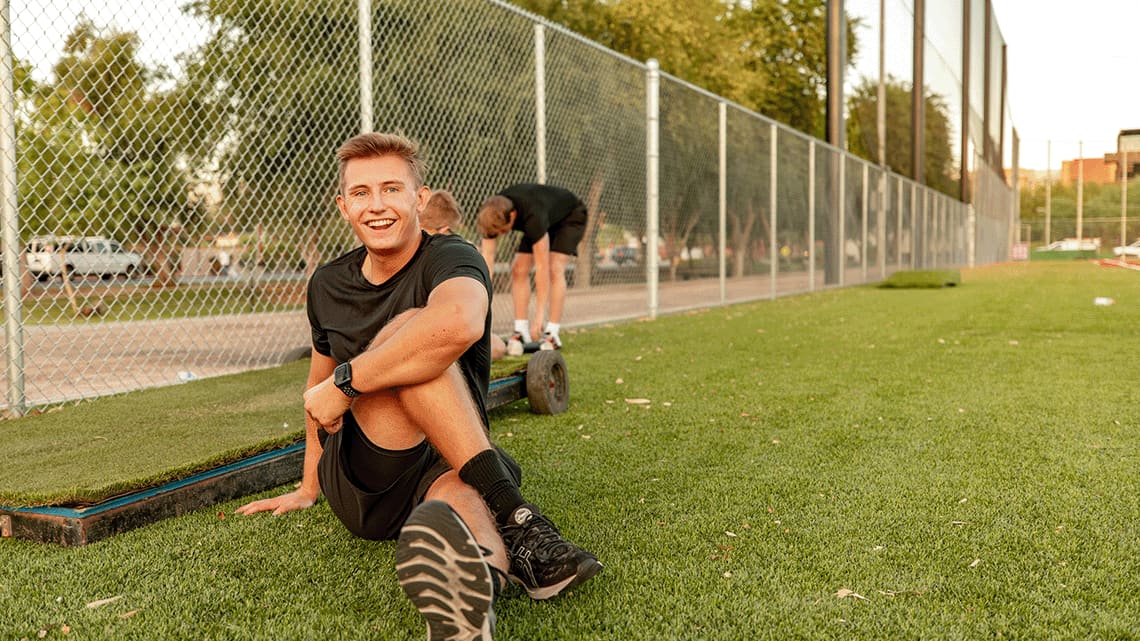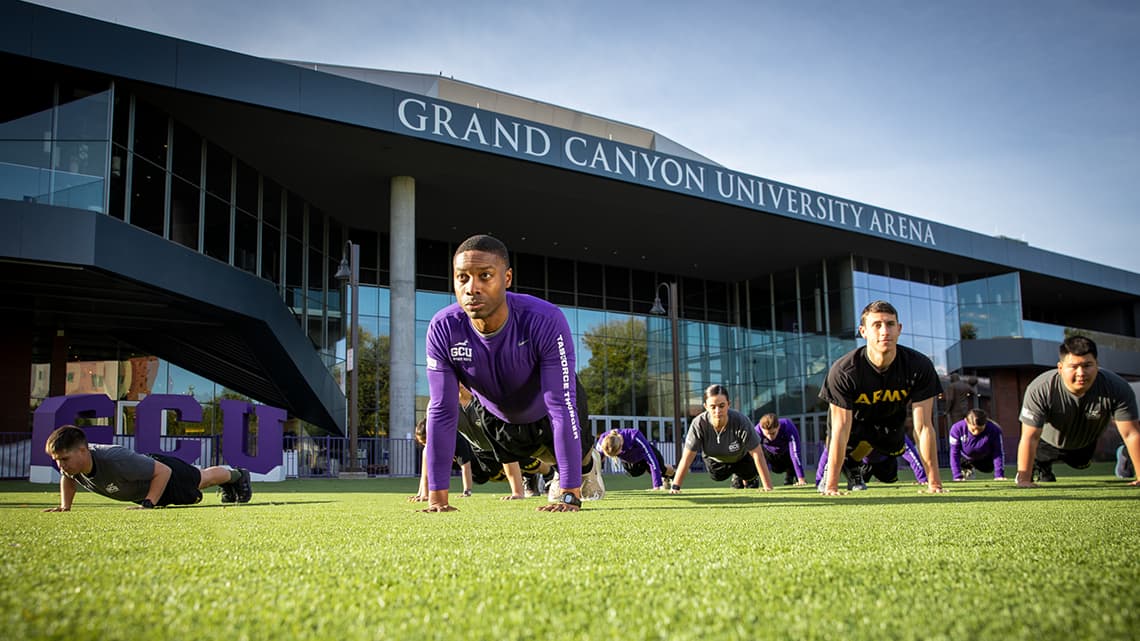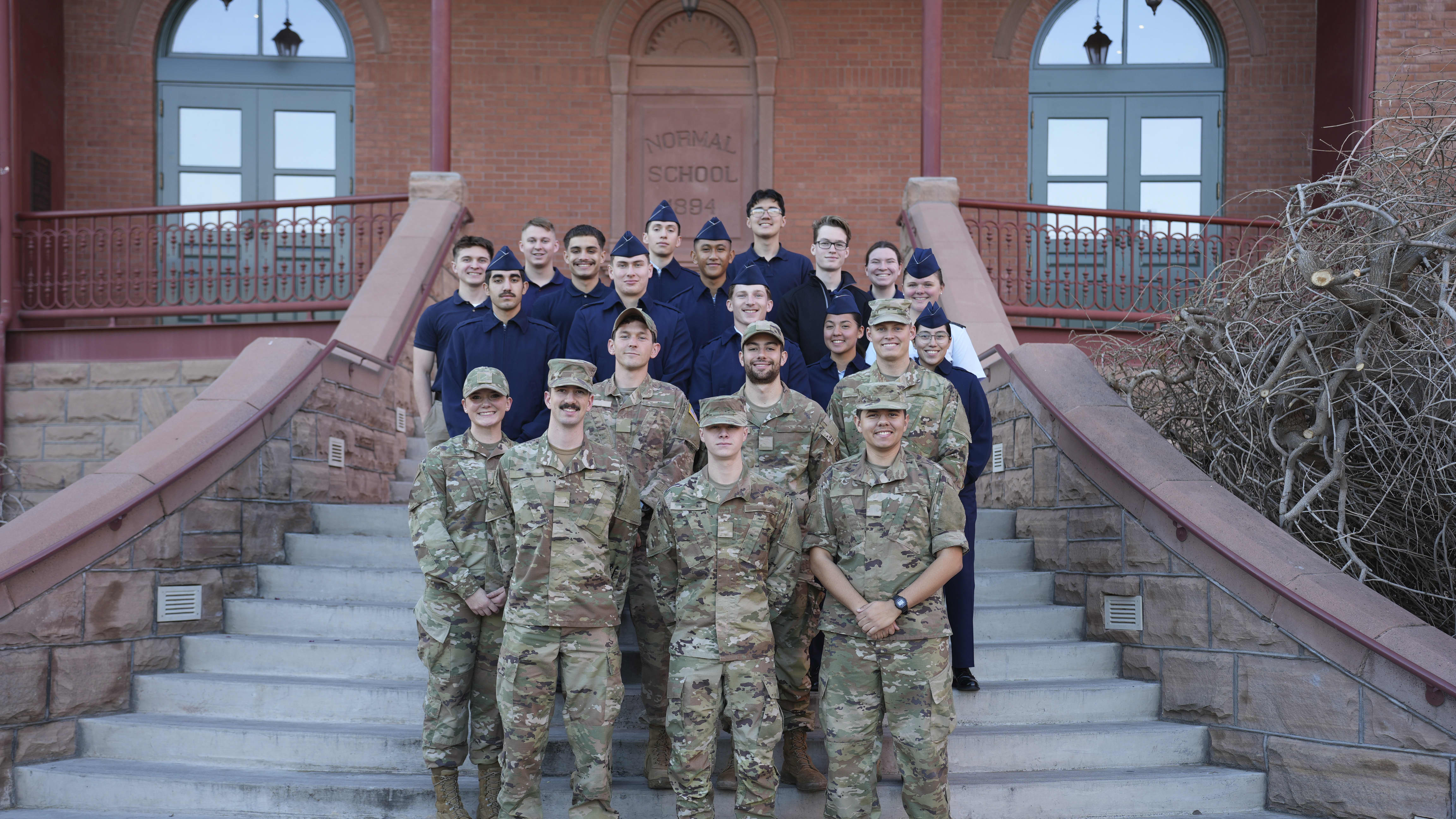ROTC Programs
What is ROTC?
The Reserve Officer Training Corp (ROTC) program is one of the most successful leadership programs in the U.S.1 It offers cadets paid tuition and a guaranteed military career post-graduation. ROTC programs at Grand Canyon University can help you develop governance skills that meet high U.S. Military quality standards and that will be useful in many post-military careers.

Benefits of ROTC in College at GCU
Army ROTC
Army ROTC combines a structured curriculum with hands-on learning and training that may provide students with a strong foundation of leadership skills. After completion of the program and graduation from college, you may become a Second Lieutenant in active duty, Army Reserve or Army National Guard.1
Air Force ROTC
Enrolling in the Air Force ROTC is also available to you at GCU. As a cadet, you will be guided through the mission and values of the U.S. Air Force with the opportunity to become officers upon graduation. To learn more about the requirements and how you can enroll, please reach out to ROTCOfficer@gcu.edu.
Lifelong Opportunities
Build lifelong relationships with fellow ROTC members within the training environment as you participate in activities. Take advantage of the following various extra-curricular activities while building strong relationships with fellow cadets.



Week in the Life of an Army ROTC Cadet
If you’re considering joining ROTC, you may be curious what a typical week could look like for you. As an Army ROTC Cadet, you can expect:
- Three or more physical training days, 5:30 am formation
- One lab day, 5:45 am formation
- Field training exercises once per semester
Explore ROTC Scholarship Opportunities at GCU
Eligible GCU students may have the opportunity to compete for an Army ROTC scholarship. You may be eligible for full tuition scholarships, allowances for books and more. View all scholarship offerings at GCU by visiting our scholarships and grants page.




After completing ROTC training in college, you will have the opportunity to commission as a second lieutenant in the U.S. Army. You may choose to be full time in the active Army, or part time in the Army Reserve or National Guard.
There are various Army career fields that graduates may choose to serve in, including:
- Finance
- Nursing
- Engineering
- Infantry
- Law enforcement
- Cybersecurity
- Military intelligence
- Human resource management
- Transportation and logistics
Courses focusing on crucial topics such as military science, leadership dynamics, military history and training management can all help to prepare cadets to serve in these various fields.
Your obligation to the Army is eight years total3
- Students who receive an Army ROTC scholarship are required to complete four years of Active Duty and four years of Individual Ready Reserve (IRR).4
- Students who finish the Army ROTC program without receiving a scholarship have an obligation of three years of Active Duty and five years of IRR.
- Students who choose to join a reserve component such as the Army National Guard or Army Reserves have a service obligation of eight years.
For more information, contact rotcofficer@gcu.edu.

GCU has partnered with Arizona State University (ASU) to offer an Air Force ROTC (AFROTC) minor, located at ASU's Tempe campus. Participating students are expected to attend Aerospace Studies (AES), Leadership Laboratory (LLAB) and Physical Training (PT) classes based on their university’s academic schedule. Objectives from missed classes must be accomplished in order to get credit for those missed days of class. Please note that transportation is not provided for students commuting to ASU.



Army ROTC FAQs
If you’re thinking about joining the Army ROTC, read through some of the most frequently asked questions and answers to learn more.



Try ROTC with No Obligation to Military Service
Non-scholarship students can try Army ROTC programs for up to two years with no obligation while they work toward a college degree at GCU. If you have questions, or if you would like to know how to enroll in the ROTC program, send us an email.
The appearance of U.S Department of Defense (DOD) or Military-themed visual information does not imply or constitute DOD endorsement.
1 U.S. Army. (n.d.). Get an education in leadership. Retrieved Jan. 3, 2024. U.S. Army. (2017).
2 Army ROTC Engagement Fact Book.
3 U.S. Army. (n.d.). Frequently Asked Questions. Retrieved Jan. 3, 2024.

